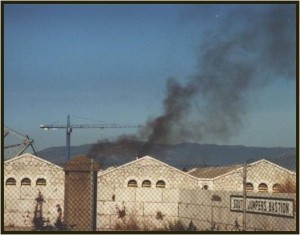Epidemiological Study – What now?
Beginning 2011 saw the publication of the Epidemiological Study on the Gibraltar population. This long awaited study highlighted several very important issues:
1) The quality of data available ( See more on this below on Data Quality)
2) The size pool targeted
3) The need for cross border studies to include conditions and public health problems in communities throughout the bay
4) The need for further specific studies to be conducted in Gibraltar to investigate why we have higher than average rates of breast cancer, for example;
5) The need to now take up the recommendations made by the scientists in the report for further study
6) The need to explore how Gibraltar’s local and regional environment affects our health and life expectancy in general
(See http://www.gibraltar.gov.gi/images/stories/PDF/environment/Epidemiological_Study.pdf
General Statement: The ESG welcomes this first study produced by the University of Aarhus in Denmark. We believe that historically, Gibraltar’s data resources and analysis on both environmental and public health grounds have been very poor or non-existent. This study therefore marks a turning point in officially acknowledging the important link between these two areas. The report also recommends further studies and extended monitoring needed to identify external factors most likely to be affecting our health.
Continuous, improved health and air monitoring data gathering should provide more opportunity for meaningful studies to be carried out in future which should then activate action plans to improve general health and environmental standards in Gibraltar.
Very importantly you need to also have a Government in power who believes these issues are a priority as progress will only happen when supported by the right policies, political will and investment.
The ESG will continue to lobby for effective and transparent studies to be done to help us achieve a better quality of life for our families and respect for the living environment.
Data Quality:
Having established that the publication of an independent Epidemiological Study is a necessary and welcome step for Gibraltar, the ESG must clarify that it continues to be concerned about the quality of air monitoring data used as baseline material in the report:
Specifically:
1) That all regional emission data was obtained by levels admitted by industry (ie not independent) and which the industry themselves publish. We know for a fact that this information is not reliable as it doesn’t take into account fugitive emissions, equipment integrity (air monitoring), etc. which in a large refinery is a large proportion of its emissions entering the surrounding environment;
2) Regional pollution levels affecting Gibraltar have then been calculated, using modelling and dispersal methodology based on this flawed data, to estimate how this could be affecting public health locally. It points to the urgent need for independent, measurements of actual pollution locally by the authors of the report, to verify the local and regional data supplied and published by the authorities/industry on either side of the border. This would be especially important for pollution levels around the refinery;
3) The report has also not taken into account or verified via their own sampling, local sources of pollution in Gibraltar either by direct measurement or theoretical dispersion modelling as they have done with the Spanish pollution data. The ESG does not understand how this could have been set aside;
Conclusion:
Given these points the report cannot therefore be the definitive one as its methodology is based on pollution modelling data and data levels of pollution supplied by industry themselves and without taking into account local sources of pollution. The study is a good initial start for general reference but much more and with higher quality of pollution measurements and data collection needs to be carried out for the results to be reliable and accurately reflect the reality on the ground.
This paper is copyright ESG prepared March 2011
=============================================================







